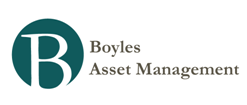Money and Finance
Sam Altman: The Software Revolution (LINK)
Evolving Investment Checklists [H/T Abnormal Returns] (LINK)
Another example of the co-evolution of predators and prey: Whirling tails of luna moths deflect bat attacks (LINK)
Book of the day: Cicero: A Portrait
- Links
Daniel Kahneman: ‘What would I eliminate if I had a magic wand? Overconfidence’ (LINK) Related book: Thinking, Fast and SlowChris Pavese's idea presentation on SeaWorld Entertainment (video) (LINK) Related book: Walt's Revolution!:...
- Links
Nepal earthquake reduces World Heritage sites to rubble (LINK) Great chart summarizing the strategies of those profiled in the book The Outsiders (LINK) TED Talk - Nick Bostrom: What happens when our computers get smarter than we are? (LINK) Related book...
- Links
I had previously missed this, but Richard Koo's latest book came out a few weeks ago: The Escape from Balance Sheet Recession and the QE Trap: A Hazardous Road for the World Economy Fortune: Inside Elon Musk's $1.4 billion score (LINK) Amazon...
- Links
Q&A with Guy Spier about his book, The Education of a Value Investor (LINK) Buffett’s Private Analysis of Geico in 1976: ‘Extraordinary’ But ‘Mismanaged’ [H/T Lincoln] (LINK) Aswath Damodaran on corporate break-ups, using EBay and PayPal...
- Hussman Weekly Market Comment: Ockham's Razor And The Market Cycle
Link to: Ockham's Razor and the Market Cycle We increasingly see investors believing that history is no longer informative, and that the Federal Reserve has finally discovered how to produce perpetually rising markets and can intervene without...
Money and Finance
Links
Sam Altman: The Software Revolution (LINK)
Related link: Sam Altman's class lectures on How to Start a StartupHussman Weekly Market Comment: Extreme Overvaluation and the Inventory Problem (LINK)
Last week’s advance had the earmarks of a short-squeeze, featuring a low-volume advance to marginal new highs on a number of indices including the S&P 500, on hopes that a Greek bailout and a firming in oil prices will put a floor under global economic deterioration. On factors that affect our estimate of the market return/risk profile, credit spreads remain broadly wider than they were a few months ago, and our primary measures of market internals remain unfavorable. Meanwhile, equity valuations – on the most historically reliable measures we identify – are now fully 117% above their pre-bubble norms, on average. As of Friday, our estimate of prospective 10-year S&P 500 annual nominal total returns has declined to just 1.4%, suggesting that even the dismal 2% yield-to-maturity on 10-year bonds is likely to outperform equities in the decade ahead.
A portfolio manager has been successful for a number of years, but still scans his checklist multiple times per day. A glance at the checklist reveals a number of to-do’s: information sources to scan, researchers to read and contact, peers to consult, time to “brainwrite” and synthesize all those views, and rules, rules, rules: rules for expressing ideas as trades to maximize reward-to-risk; rules for checking correlations among planned positions to optimize portfolio diversification; rules for sizing positions; rules for taking profits–and on and on.
The checklist has been developed over time, and it continues to evolve. When the manager does something right, the success is reverse engineered and turned into a potential principle. If the principle holds true over time, it is translated into a best practice–and then it finds its way onto the checklist.
The best practices checklist is a crystallization of experience, but it is also a crystallization of the manager’s strengths. It is an expression of what he does when he is at his best. What is his edge in financial markets? Superior research plays a role, as does superior portfolio construction and superior money management. Broadly, however, his edge is that he grounds himself in strengths by turning best practices into robust, best processes.
Book of the day: Cicero: A Portrait
- Links
Daniel Kahneman: ‘What would I eliminate if I had a magic wand? Overconfidence’ (LINK) Related book: Thinking, Fast and SlowChris Pavese's idea presentation on SeaWorld Entertainment (video) (LINK) Related book: Walt's Revolution!:...
- Links
Nepal earthquake reduces World Heritage sites to rubble (LINK) Great chart summarizing the strategies of those profiled in the book The Outsiders (LINK) TED Talk - Nick Bostrom: What happens when our computers get smarter than we are? (LINK) Related book...
- Links
I had previously missed this, but Richard Koo's latest book came out a few weeks ago: The Escape from Balance Sheet Recession and the QE Trap: A Hazardous Road for the World Economy Fortune: Inside Elon Musk's $1.4 billion score (LINK) Amazon...
- Links
Q&A with Guy Spier about his book, The Education of a Value Investor (LINK) Buffett’s Private Analysis of Geico in 1976: ‘Extraordinary’ But ‘Mismanaged’ [H/T Lincoln] (LINK) Aswath Damodaran on corporate break-ups, using EBay and PayPal...
- Hussman Weekly Market Comment: Ockham's Razor And The Market Cycle
Link to: Ockham's Razor and the Market Cycle We increasingly see investors believing that history is no longer informative, and that the Federal Reserve has finally discovered how to produce perpetually rising markets and can intervene without...

